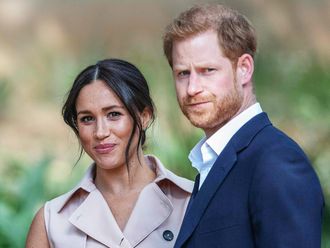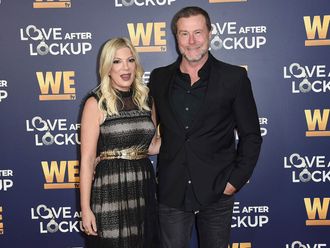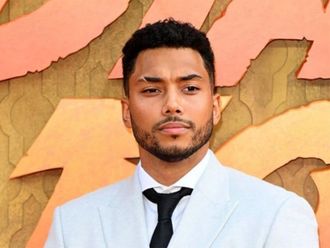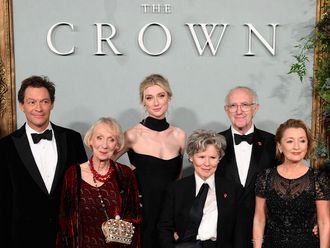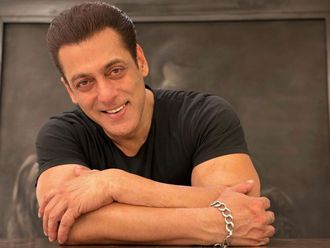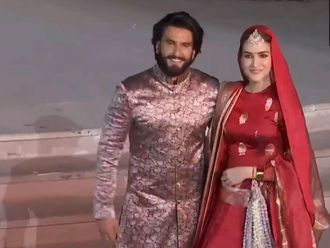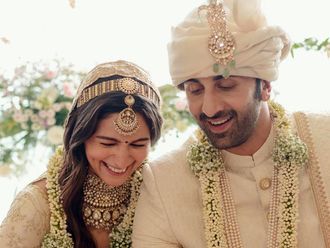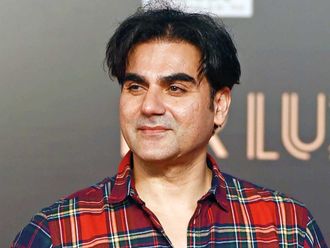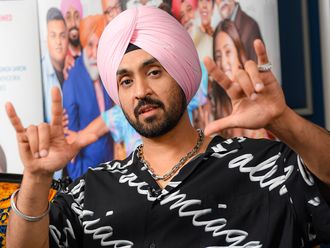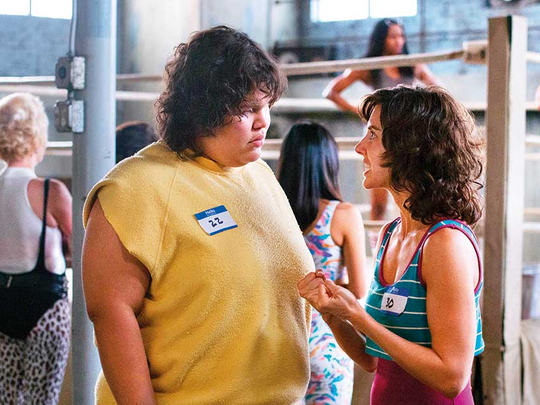
Glow, Netflix’s new series about a troupe of female wrestlers in the 80s, opens with a dig at the lack of roles for women in the entertainment business. Alison Brie’s Ruth is at an audition, delivering a barnstorming speech about saving the company her father built. The casting director stops proceedings as Ruth wipes away tears. “You’re reading the man’s part,” the director says. Ruth pulls herself together and starts again: “Sorry to interrupt, your wife’s on line two.”
In this very first scene, Glow sets out a blueprint. It’s an insider joke: the audience can tell from the off that this is not going to be the kind of story where female characters are reduced to playing the love interest.
‘Orange Is the New Black.’
Television is rediscovering the power of the female ensemble, and this time, it’s spreading its wings. Though TV history is dappled with groups of women, from the Golden Girls to Pretty Little Liars, many shows — particularly those box set must-sees that tend to fall under the prestige banner — struggle to pass the Bechdel test. Famously, the Bechdel test is usually applied to movies and runs a film against the following criteria: a) it has to have at least two women in it, b) who talk to each other, about c) something other than a man. A shocking number of productions fail it. Even Sex and the City centered its characters on their love lives, for the most part, and it’s kindest to quickly pass over its forgettable imitator, Lipstick Jungle.
But more TV shows are appearing that pass the Bechdel test and then some. How astonishingly refreshing it is to come across more than one show at a time in which friendship is the core from which other storylines radiate, rather than sex and romance. That’s not to say that these shows lack love, just that from Orange Is the New Black to The Handmaid’s Tale to The Good Fight, there’s simply far more to them. TNT’s Claws is the riotous new kid on the block. The “Florida noir”, set in a nail salon, is exec-produced by Rashida Jones, among others - as Leslie’s best friend Ann in Parks and Recreation, Jones was no stranger to Bechdel-friendly TV - and it’s an over-the-top tale of murder and manicures. Or, as Karrueche Tran’s Virginia puts it, in what should have been the tagline, “There’s a whole lot more to life than just painting hooves.”
‘The Good Fight’.
Against a neon pink and green John Waters-ish backdrop, Niecy Nash is Desna, who runs the salon with a sideline in money-laundering for Uncle Daddy (Breaking Bad’s Dean Norris, clearly having the time of his life as a cartoon villain draped in criminally loud fabrics and huge chains). While Desna is cleaning up the mess after her boyfriend/employer Roller finds himself on the wrong side of bullets, fire and alligators, she’s also the matriarch of the salon’s employees, who each have a struggle of their own to work through. It’s a delicious mix of high stakes and high camp that dives into black humour with gusto (see the scene in which Desna improvises to the gathered crowd why Virginia, whom she’s knocked to the floor, is upset: “She just had an abortion, she’s all right.”).
It’s also a good example of what these kinds of shows do best, which is to portray women’s lives across a spectrum of time and experience. The characters are united by one thing: class. Claws is not about rich women, but it is about the specific experience that women, perhaps as carers, or mothers, have when they are not rich, and what is unique about that. They are not all the same age or race. They are not all straight. It doesn’t come across as a trite exercise in box-ticking, and it does feel fresh. For all of the show’s delicious hysteria, its backbone is solid. As Desna tells Virginia, while slapping her to the ground, “I gave you a chance, [expletive]!” Giving bitches a chance is what Claws is all about. The framework for a show like Claws can be traced back through Shonda Rhimes’ ShondaLand stable, from Grey’s Anatomy to Scandal to How to Get Away With Murder, and also to Orange Is the New Black. Orange Is the New Black’s creator Jenji Kohan is the executive producer behind Glow, an unholy hybrid of WWF, the San Junipero episode of Black Mirror and Mad Men, thematically, if not in terms of quality. It’s a story about a sexist time and how women both suffer from that and must learn to turn it to their advantage. Unsurprisingly, it’s complicated. While Claws lays out female solidarity and friendship as its nucleus right from the beginning, the seeds of Glow are the less Bechdel-ey conflict between Ruth and Debbie, when Debbie discovers best friend Ruth was sleeping with her husband (Rich Sommer, or Mad Men’s Harry Crane, for some added period sexism clout).
‘Claws’ takes on a new genre, ‘Florida noir’.
For the first few episodes, these wannabe Gorgeous Ladies Of Wrestling are manipulated and shouted down by Marc Maron’s domineering director Sam, and early on it can feel as if it’s simply documenting the decade’s queasily casual sidelining of women, and particularly women who are not white. (In a move familiar to OITNB fans, Ruth is our way into the story, but despite Brie’s very good performance, she’s also one of the characters with the least to say.) After it settles in, though, it steps up to the challenge, moving away from what first felt like an excuse for a character such as Sam to boorishly inform Debbie that she’s got big boobs and brains to a more complex examination of how women survive in hostile environments. It’s bracingly unwilling to settle for a simple answer.
While it’s a stretch to decide that a handful of comedy-dramas that let women be people rather than footnotes is a sign of a vast sea change, it does seem to be nudging television more in that direction. It makes commercial sense, after all: if Wonder Woman can open so big, then it’s illogical to be cautious over the ability of stories about women to command a significant audience. Towards the end of 2016, when promoting her novel Swing Time, Zadie Smith gave an interview to the New Yorker Radio Hour.
‘The Handmaid’s Tale’.
She was asked why, with Swing Time, with the Elena Ferrante series, it felt as if stories about female friendships were so present right now. Smith said she had been thinking about it herself and pointed out that for a large portion of literary history, men wrote the stories. “Women are writing more than they have in human history,” she said, which explained why aspects of life considered by some to be “female” - those obsessive childhood friendships, even the domestic sphere — were being treated as thematic equals. I think that’s what is happening in television, too. At last, it’s no longer just casting for the secretary.


